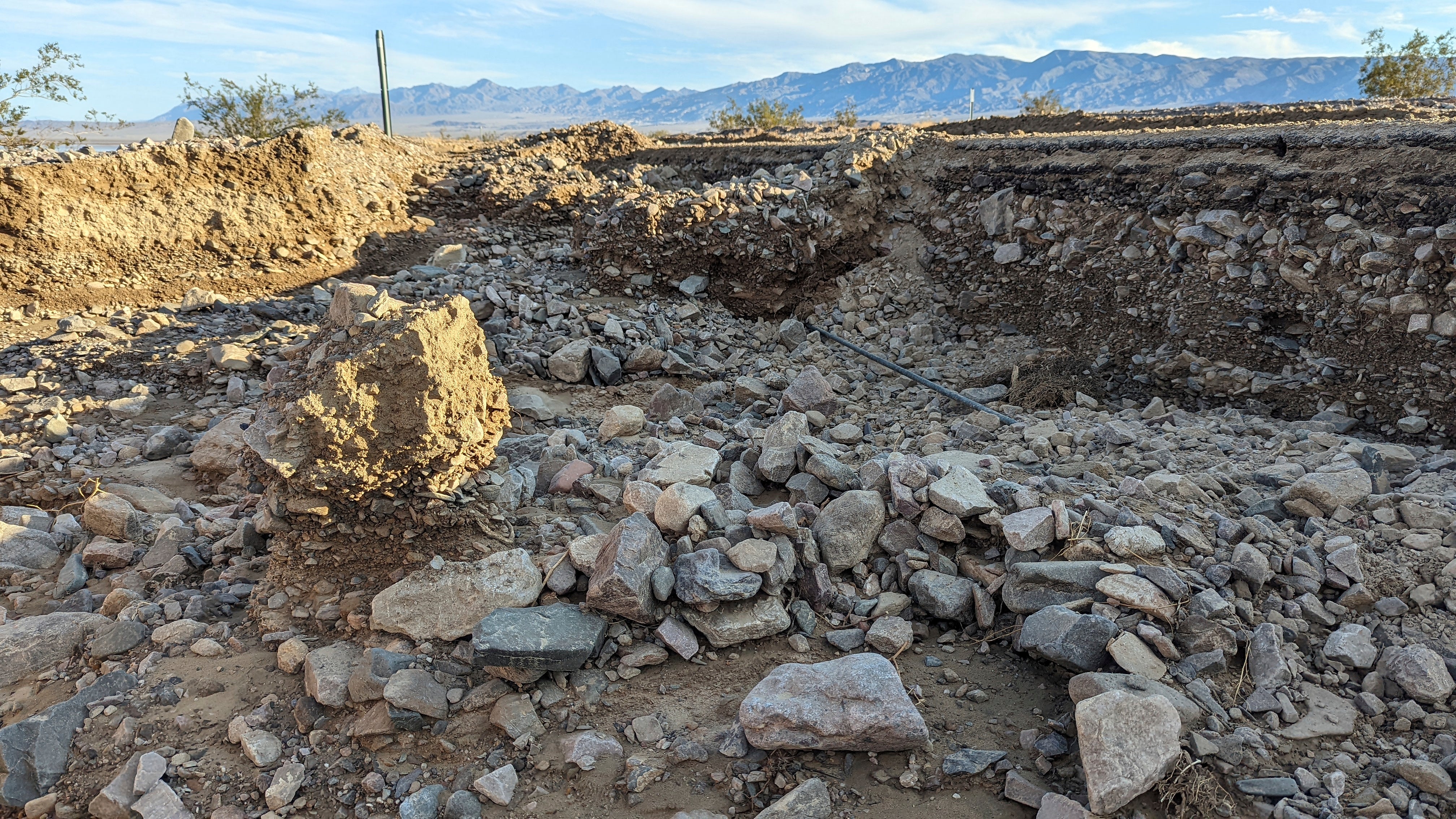Reshaped Death Valley park could take months to reopen after damage from Hilary
Officials say it could take months for Death Valley National Park to reopen to visitors after Tropical Storm Hilary

Your support helps us to tell the story
From reproductive rights to climate change to Big Tech, The Independent is on the ground when the story is developing. Whether it's investigating the financials of Elon Musk's pro-Trump PAC or producing our latest documentary, 'The A Word', which shines a light on the American women fighting for reproductive rights, we know how important it is to parse out the facts from the messaging.
At such a critical moment in US history, we need reporters on the ground. Your donation allows us to keep sending journalists to speak to both sides of the story.
The Independent is trusted by Americans across the entire political spectrum. And unlike many other quality news outlets, we choose not to lock Americans out of our reporting and analysis with paywalls. We believe quality journalism should be available to everyone, paid for by those who can afford it.
Your support makes all the difference.It's unclear when Death Valley National Park will reopen to visitors after heavy rains from Tropical Storm Hilary forged new gullies and crumbled roadways at the site of one of the hottest places in the world, officials said.
The storm dumped a furious 2.2 inches (6 centimeters) of rain Aug. 20, roughly the amount of rainfall the park usually receives in a year. This year's rainfall broke its previous record of 1.7 inches (4 centimeters) in one day, set in August of last year.
“Two inches of rain does not sound like a lot, but here, it really does stay on the surface,” Matthew Lamar, a park ranger, told the Los Angeles Times. "Two inches of rain here can have a dramatic impact.”
The park, which straddles eastern California and Nevada, holds the record for the hottest temperature recorded on the planet — 134 degrees Fahrenheit (57 degrees Celsius), reached in 1913.
Officials say it could be months before the park reopens. It has been closed since Hilary, the first tropical storm to hit Southern California in 84 years, swept through the state in August.
Christopher Andriessen, a spokesperson with the California Department of Transportation, also known as Caltrans, told the Times that about 900 of the park's nearly 1,400 miles (2,250 kilometers) of roads have been assessed.
Repair costs are estimated at $6 million, but only for one of the park's main roads, State Route 190, and a small part of State Route 136.
“We don’t have a timeline yet,” park spokesperson Abby Wines told The Associated Press on Monday. "Caltrans has said they expect to fully open 190 within three months, but they often are able to open parts of it earlier."
Some familiar sites survived the storm, including Scotty’s Castle, a popular visitor destination.
Young and adult endangered pupfish at Devils Hole cavern survived, although eggs were likely smothered by sediment, the park said on social media last month. Endangered Salt Creek pupfish also survived, the newspaper reported.